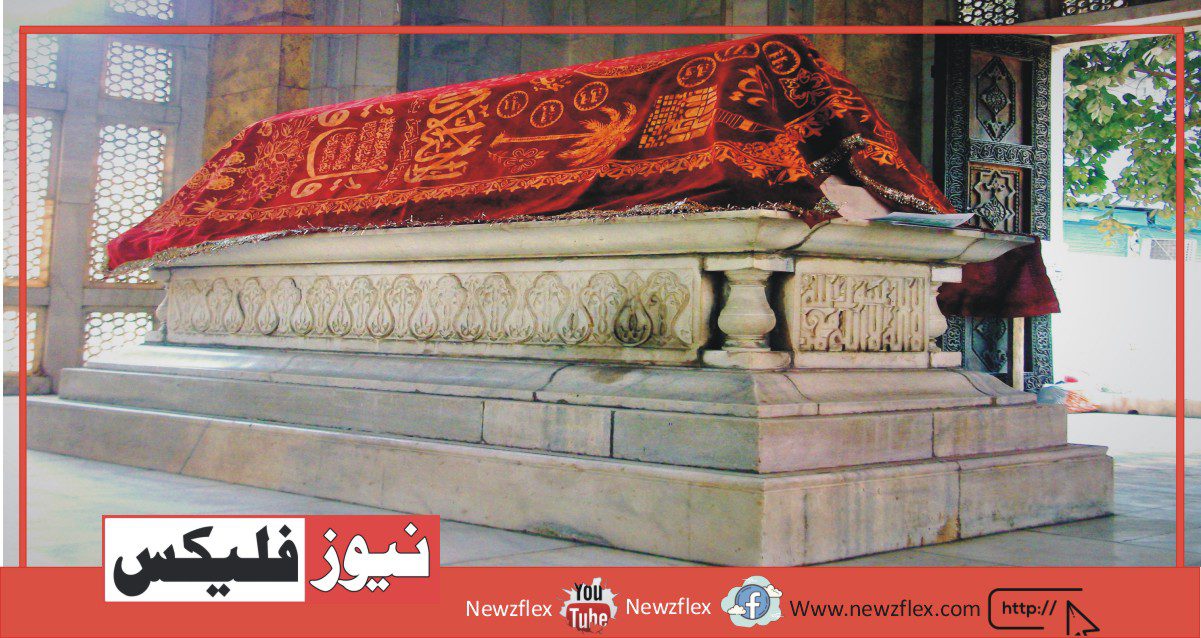
Qutbuddin Aibak
Qutbuddin Aibak is known in history as the founding father of the slave dynasty and it’s believed that the dynasty derives its name from Qutbuddin who was originally a slave. But it’s also true that before accession, Qutbuddin had received the letter of manumission from his master (Mohammad Ghori) and came to accession as an independent ruler. When Mohammad Ghori died in 1206 A.D., he left no male heir to succeed him.
So it had been the will of Mohammad Ghori, that Qutbuddin succeeded him and his formal accession happened on 24th June 1206. He was endowed with many laudable qualities of heart and soul and surpassed his contemporaries both in East and West in his liberality, beneficence, and gallantry. He was well familiar with the principles of civil administration and was an expert in military affairs. He was an excellent warrior and a man of infinite courage.
He rose to the position of power and glory by the sheer dint of merit and energy. Before coming to power, he proved so faithful to his master, that he was appointed a commander of a section of the military of his master. He rendered many valuable services to his master during his Indian expeditions.
To strengthen his position, Qutbuddin entered into matrimonial alliances with important personalities. He married the daughter of Tajuddin Yildiz. He married his sister to Nasiruddin Qabacha. To Iltutmish he married his daughter.
After coming to power, Qutbuddin had to face many challenges, to keep his position intact. Turkish officers couldn’t be trusted as they were all jealous of his power. The Rajputs were also a large threat and were defeated and therefore the sovereignty of North India was snatched from their hands by the Turks so they were fighting against the Turks at different places.
The distant provinces which were captured by Turks, weren’t under complete control of Qutbuddin, as was the case with Bengal. Qutbuddin faced these difficulties determinedly. He first strengthened his position in Delhi and Lahore then the foremost Turkish nobles were persuaded to simply accept his subordination. He stubbornly refused to just accept the overlordship of Yildiz, turned him out of Punjab, and saved his infant kingdom from the politics of Central Asia.
Thus, both by diplomacy and force, he succeeded in maintaining the separate and independent status of the Delhi Sultanate. Qutbuddin couldn’t pursue the policy of extension of his kingdom. He couldn’t pay due attention even to the Rajputs who succeeded in recovering a number of their territories from the Turks.
Mostly he remained busy defending his independent position. That’s why he remained mostly in Lahore rather than Delhi. He got little or no time as an independent ruler. While playing Chauhan (horse polo), he fell from his horse and shortly died in 1210 A.D. He was buried at Lahore and a simple monument was raised over his grave.
قطب الدین ایبک
قطب الدین ایبک کو تاریخ میں غلام خاندان کے بانی کے طور پر جانا جاتا ہے اور یہ خیال کیا جاتا ہے کہ اس خاندان کا نام قطب الدین سے نکلا ہے جو اصل میں ایک غلام تھا۔ لیکن یہ بھی سچ ہے کہ الحاق سے قبل قطب الدین کو اپنے آقا (محمد غوری) سے دستبرداری کا خط ملا تھا اور وہ ایک آزاد حکمران کے طور پر الحاق میں آیا تھا۔ جب محمد غوری کا انتقال 1206ء میں ہوا تو اس نے اپنے بعد کوئی مرد وارث نہیں چھوڑا۔ چنانچہ محمد غوری کی خواہش تھی کہ قطب الدین اس کا جانشین بنے اور اس کا باقاعدہ الحاق 24 جون 1206ء کو ہوا۔
وہ دل اور روح کی بہت سی قابل تعریف خصوصیات سے نوازا گیا تھا، اور اس نے اپنی آزادی، احسان اور بہادری میں مشرق اور مغرب دونوں میں اپنے ہم عصروں کو پیچھے چھوڑ دیا تھا۔ وہ سول انتظامیہ کے اصولوں سے بخوبی واقف تھے اور عسکری امور کے ماہر تھے۔ وہ ایک عظیم جنگجو اور لامحدود ہمت کا آدمی تھا۔ وہ قابلیت اور محنت کے سراسر پن سے طاقت اور جاہ و جلال کے مقام تک پہنچا۔
اقتدار میں آنے سے پہلے وہ اپنے آقا کا اتنا وفادار ثابت ہوا کہ اسے اپنے آقا کی فوج کے ایک حصے کا کمانڈر مقرر کر دیا گیا۔ اس نے اپنی ہندوستانی مہمات کے دوران اپنے آقا کی بہت سی گرانقدر خدمات انجام دیں۔ اپنی پوزیشن مضبوط کرنے کے لیے، قطب الدین نے اہم شخصیات کے ساتھ ازدواجی تعلقات قائم کر لیے۔ اس نے خود تاج الدین یلدز کی بیٹی سے شادی کی۔ اس نے اپنی بہن کی شادی ناصر الدین قباچہ سے کی۔ التمش سے اس نے اپنی بیٹی کی شادی کی۔
اقتدار میں آنے کے بعد قطب الدین کو اپنی پوزیشن برقرار رکھنے کے لیے بہت سے چیلنجز کا سامنا کرنا پڑا۔ ترک افسران پر بھروسہ نہیں کیا جا سکتا تھا کیونکہ وہ سب اس کی طاقت سے جلتے تھے۔ راجپوت بھی ایک بہت بڑا خطرہ تھے، جنہیں شکست ہوئی اور ترکوں نے شمالی ہندوستان کی خودمختاری ان کے ہاتھ سے چھین لی، اس لیے وہ مختلف مقامات پر ترکوں کے خلاف برسرپیکار تھے۔ دور دراز کے صوبے جن پر ترکوں نے قبضہ کر لیا تھا، وہ قطب الدین کے مکمل کنٹرول میں نہیں تھے، جیسا کہ بنگال کا تھا۔ قطب الدین نے ان تمام مشکلات کا عزم عزم کے ساتھ کیا۔
اس نے پہلے دہلی اور لاہور میں اپنی پوزیشن مضبوط کی اور پھر اکثر ترک امراء کو اس کی ماتحتی قبول کرنے پر آمادہ کیا گیا۔ اس نے ضد کے ساتھ یلڈیز کی بالادستی کو قبول کرنے سے انکار کر دیا، اسے پنجاب سے نکال دیا اور وسطی ایشیا کی سیاست سے اپنی نوزائیدہ مملکت کو بچا لیا۔ اس طرح، سفارت کاری اور طاقت دونوں سے، وہ دہلی سلطنت کی علیحدہ اور خود مختار حیثیت کو برقرار رکھنے میں کامیاب ہو گیا۔
قطب الدین اپنی سلطنت کی توسیع کی پالیسی پر عمل نہ کر سکے۔ وہ راجپوتوں کی طرف بھی مناسب توجہ نہ دے سکے جو ترکوں سے اپنے کچھ علاقوں کو واپس لینے میں کامیاب ہو گئے۔ زیادہ تر وہ اپنی آزاد حیثیت کے دفاع میں مصروف رہے۔ اس لیے وہ زیادہ تر دہلی کے بجائے لاہور میں ہی رہے۔ اسے ایک آزاد حکمران کی حیثیت سے بہت کم وقت ملا۔ چوغان (گھوڑے کا پولو) کھیلتے ہوئے، وہ اپنے گھوڑے سے گر گیا اور جلد ہی 1210 عیسوی میں انتقال کر گیا، اسے لاہور میں دفن کیا گیا اور ان کی قبر پر ایک سادہ یادگار بنایا گیا۔








